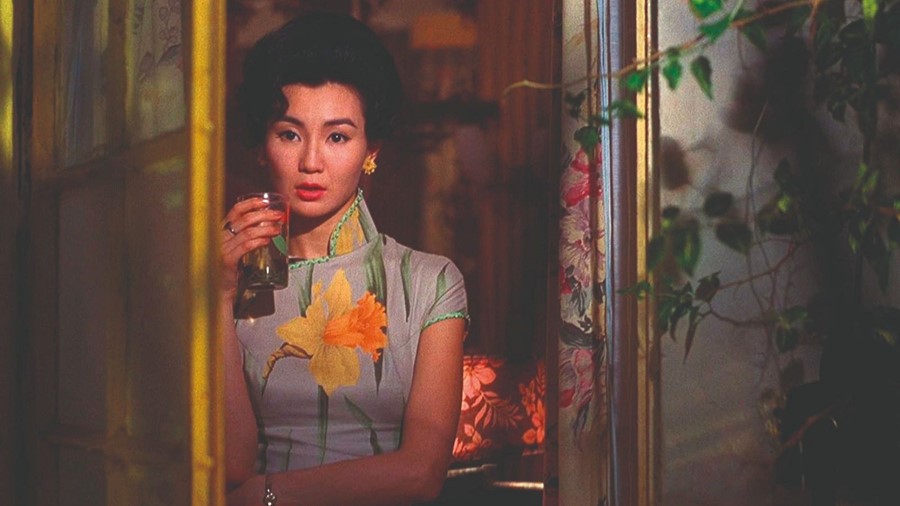Ahead of a new season at the BFI, here are six of Maggie Cheung’s best films, from Wong Kar-wai’s achingly romantic In the Mood for Love to Olivier Assayas’ cult classic Irma Vep
During its last cinematic golden age between the mid-1980s and the late 90s, the Hong Kong film industry was a hotbed for performing talent, launching such radiant stars as Jackie Chan, the swoon-worthy Tony Leung, and Academy Award winner Michelle Yeoh, who would transcend national boundaries to become international icons today. But perhaps the region’s most legendary screen beauty, described as “one of cinema’s most luminous stars” by the BFI, eventually chose to shun her stardom at the very peak of her powers, retiring from the screen in 2004 after winning one of the world’s greatest acting prizes. 20 years on, Maggie Cheung is the subject of an inspired new film season in London.
An eternal star thanks to her timeless performance in Wong Kar-wai’s In the Mood for Love – polled the fifth greatest film of all time in Sight and Sound’s once-a-decade critics’ poll in 2022 – Cheung is the focal point of Maggie Cheung: Films of Romance, Melancholy and Magic at the BFI this September-October. The season shines a light on the versatile actress’ illustrious career, which, across 70-odd productions, ranging from zany comedies to nuanced arthouse classics, would net her major prizes both at home (she remains the record-holder for most Best Actress wins at the Hong Kong Film Awards, with five) and overseas.
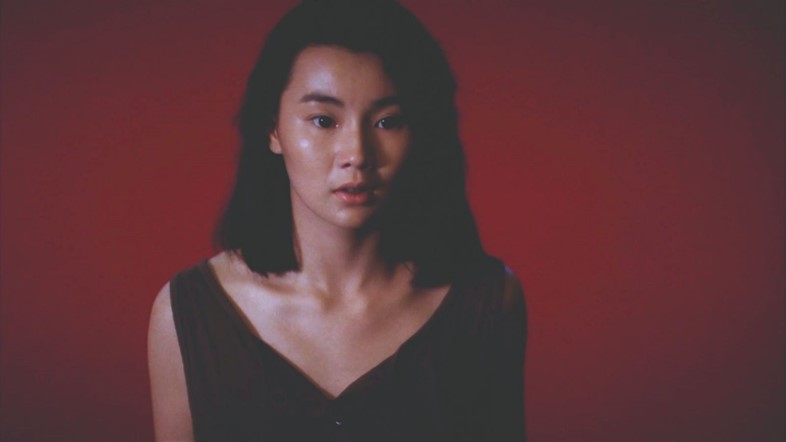
With a canon already spanning collaborations with renowned auteurs such as Stanley Kwan (Rouge), Zhang Yimou (Raise the Red Lantern) and Olivier Assayas (Personal Shopper), the world was at her feet when she collected the Best Actress prize at Cannes in 2004, for the latter’s movie Clean. But it would be her effective swansong: “Since I won in Cannes,” she told The Independent in 2007, “I feel fulfilled as an actress.”
Two decades on from that career-defining moment, which closed the door on her screen career, Cheung remains shrouded in mystery as her immense gravitas continues to inspire all over the world. As her finest works receive rare big-screen outings in the weeks ahead, AnOther explores six ideal starting points for a Maggie Cheung deep dive below:
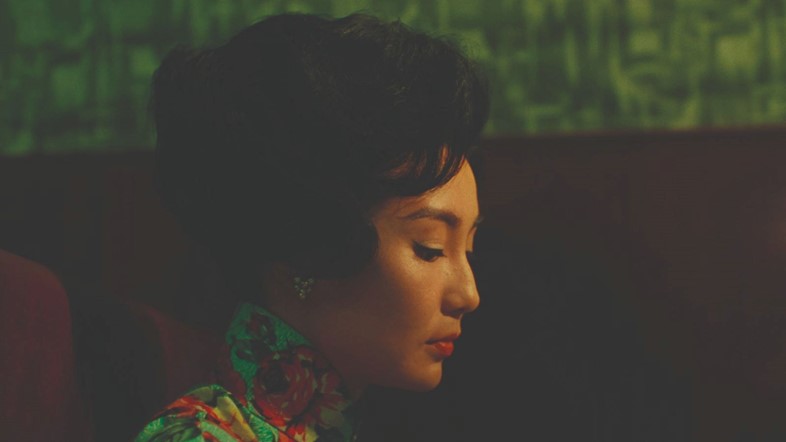
In The Mood for Love (Wong Kar-wai, 2000)
Screening Friday 27 September, Saturday 5 October and Tuesday 8 October at BFI Southbank
Where else to start than with what is arguably the greatest romantic drama of all time?
Cheung’s collaborations with Wong Kar-wai – highlights of which screen at the BFI this September – truly cemented her international stardom, but none were as impactful as In the Mood for Love. Dressed in magnificent floral cheongsams in what is perhaps the most stirring expression of loneliness and unrequited love ever put to film, Cheung’s outing as the solitary Su Li-zhen, caught in an emotional tangle with journalist Chow Mo-wan (Tony Leung), is a performance for the ages.
Explore the Cannes Technical Grand Prize winner in greater depth via Dazed, and read about on-set photographer Wing Shya’s experiences working with Cheung via our recent feature commemorating his new monograph. Our guide to Wong Kar-wai’s sumptuous back catalogue, meanwhile, is a great place to start for the uninitiated.
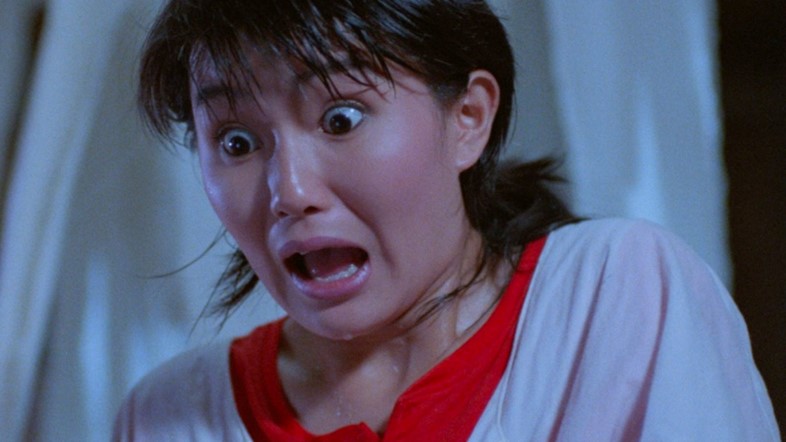
The Seventh Curse (Lam Ngai Kai, 1986)
Available on home media via 88 Films
Before her first “serious” acting role in Wong Kar-wai’s 1988 crime drama As Tears Go By, Cheung’s early career was broadly defined by goofy slapstick and damsel-in-distress roles. And while her appearance as Jackie Chan’s woebegone girlfriend in rip-roaring actioner Police Story (screening at the BFI in October) would lay the groundwork for the actress’ future stardom, arguably Cheung’s most deliriously fun outing of this era was via a batshit exploitation movie akin to Indiana Jones and the Temple of Doom meets Alien.
Largely set in Thailand, where spell-casting tribesmen sacrifice children in blood rituals and skeletal zombies are summoned to suck spines from human corpses, The Seventh Curse represents loony Hong Kong B-movie filmmaking at its most deranged. It’s positively overloaded with chest-bursting monster babies, maggot-infested torsos, and buckets of blood-red paint, and the gut-churning physical effects have lost none of their impact in the decades since the film’s release. It’s great fun, with the presence of emerging superstars like Cheung and Chow Yun-fat (Crouching Tiger, Hidden Dragon) marking the film out from other super-charged horror hybrids of the era.
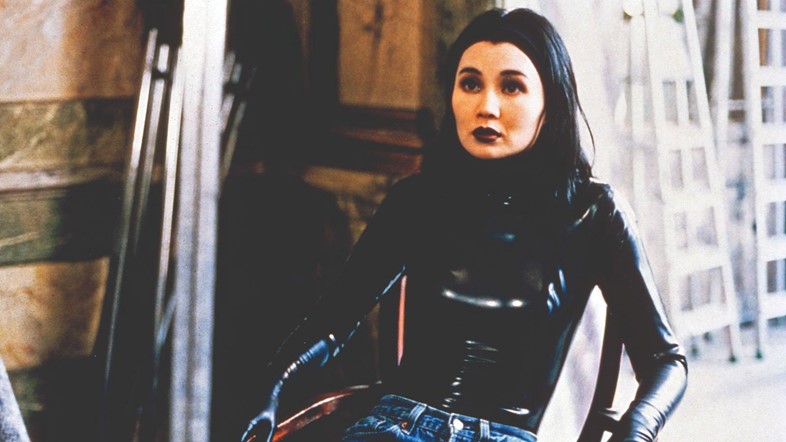
Irma Vep (Olivier Assayas, 1996)
Screening Monday 9 September, Wednesday 18 September and Saturday 5 October at BFI Southbank
After a prolific period during the late 80s and early 90s in which she became the first Chinese performer to win Berlin Film Festival’s Best Actress prize (for Stanley Kwan’s Center Stage – screening at the BFI this September), Cheung’s star was well and truly risen by the mid-90s. Her first collaboration with French filmmaker Olivier Assayas, whom she would marry a few years later, would gain her even greater attention in the West in 1996, with Cheung playing a fictionalised version of herself in the nouvelle vague-inspired Irma Vep.
The film, which is elevated by the music of Sonic Youth, Serge Gainsbourg and Ali Farka Touré on the soundtrack, satirises the French film industry by depicting the chaotic production of a remake of the silent serial Les Vampires. Cheung is the unlikely muse to a washed-up director René Vidal, who is derided by the press for his self-indulgent filmmaking and resented by his crew for his unreliable behaviour. Shot in classic verité style – using real locations, handheld cameras, unbroken long-takes and naturalistic performances — the movie deliberately evokes the films of the French New Wave as a means of deconstructing its legacy, with the casting of The 400 Blows’ Jean-Pierre Léaud as Vidal one of the film’s many inspired references.
Cheung – donning a squeaky latex outfit inspired by Michelle Pfeiffer’s Catwoman – is the glue that holds it all together. Delivering her lines in a perfect British accent (she spent much of her childhood living in Bromley, would you believe it), her presence is best summated by the in-film director himself: “You are mysterious like Irma Vep, you are beautiful like Irma Vep, you are magic like her, and you are very strong,” says Vidal. “You can be Irma Vep because you have the grace.”
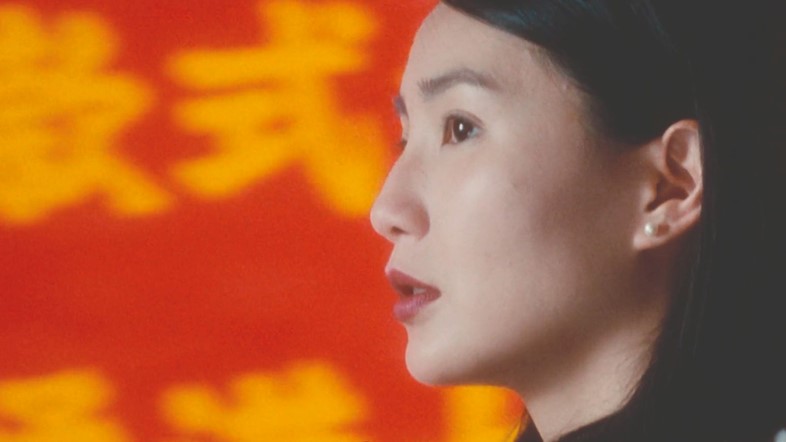
Comrades: Almost a Love Story (Peter Chan, 1996)
Screening Saturday 21 September and Monday 30 September at BFI Southbank
Wide-eyed Xiao-jun (Cantopop star Leon Lai), a mainland émigré with no grasp of the Cantonese language, arrives on the bustling Nathan Road with barely a Hong Kong dollar in his pocket, hoping to build a new life in the city. But after holing up in his Auntie’s cupboard and picking up a job as a bicycle courier, he bumps into beautiful McDonald’s worker Li Qiao (Cheung), a feisty, gum-chewing chancer with debts to pay. As the two mismatched outsiders grow close, what initially appeared to be a benign fish-out-of-water story (spot the Midnight Cowboy reference early on) transforms into a beguiling will-they-won’t-they, as divergent paths threaten to leave their chemistry unresolved.
In a narrative that unfolds over ten years, taking Xiao-jun and Li Qiao from Hong Kong to New York in the second half, Comrades: Almost a Love Story makes no qualms about piling on the melodrama. But Cheung is so utterly magnetic in her role (and Peter Chan’s direction so gentle and enchanting) that it all feels affectingly relatable. It’s a masterpiece of romantic filmmaking, anticipating both In the Mood for Love and Past Lives to a degree, while also feeling resolutely of its time. An instant classic in the Chinese-speaking world, it won Best Film at both the Golden Horse Awards and the Hong Kong Film Awards in 1997, while Cheung took home Best Actress at both ceremonies.
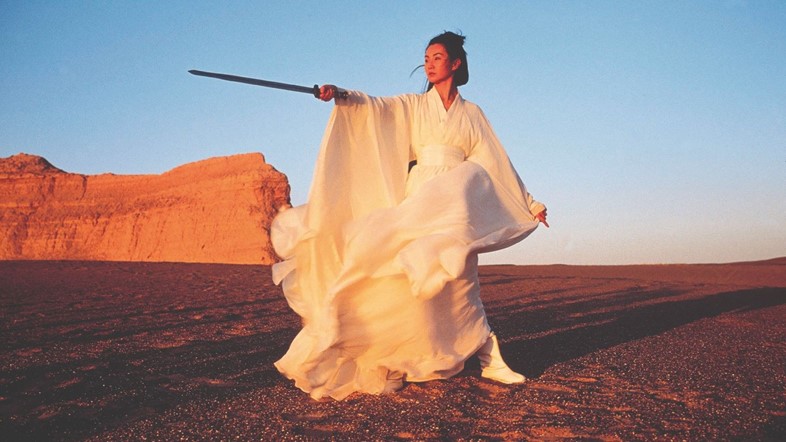
Hero (Zhang Yimou, 2002)
Screening Monday 23 September and Sunday 6 October at BFI Southbank
That Hero is grouped in the “kick-ass action” sub-category of the BFI’s Maggie Cheung season is something of a misnomer. Though this lavish wuxia movie is saturated with balletic sword fights and hypnotic martial combat, it is not the pulse-quickening, post-Matrix historical thriller suggested by its marketing in the West (“presented by Quentin Tarantino”, the Miramax trailer boasted). Directed by Zhang Yimou, winner of both a Berlin Golden Bear and a Venice Golden Lion in the years prior – and shot by celebrated Wong Kar-wai cinematographer Christopher Doyle – Hero is a transcendental art film of the highest technical order. It was nominated for an Oscar in 2003 as a result.
The movie reimagines the tale of Jing Ke, who, in 227BC, at the height of China’s Warring States period, attempted to assassinate the King of Qin, who intended to unify the country through conquest. But instead of a straightforward historical epic, the film offers an ambiguous, Rashomon-style narrative in which multiple versions of the events leading up to this confrontation (each presented in a distinct colour scheme) are recounted by untrustworthy narrators.
The most expensive film ever made in China at the time of production, Hero’s budget is on full, dazzling display in every frame via intricate costumes, palatial sets, and cinematography that chews on the vast desert scenery on the China-Kazakhstan border. No expense was spared on the cast, either: ingeniously, it reunites In The Mood For Love leads Tony Leung and Maggie Cheung as legendary assassins in a romantic feud. The latter’s graceful physicality enriches a spellbinding screen presence here, contributing to significant box office success in both East and West.
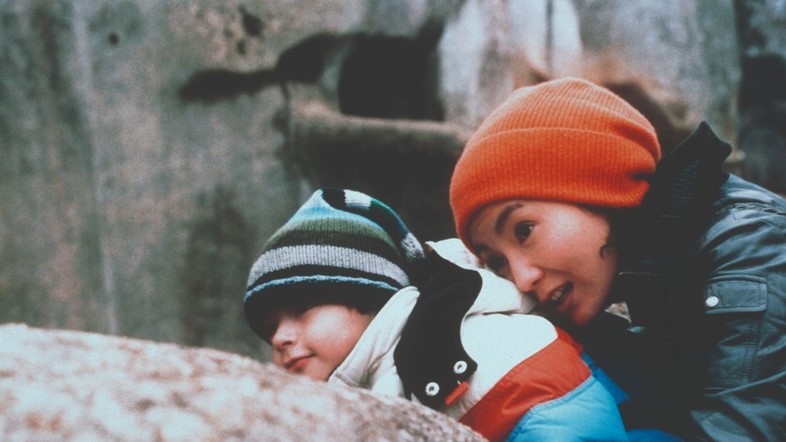
Clean (Olivier Assayas, 2004)
Screening Thursday 3 October and Tuesday 8 October at BFI Southbank
Completed three years after her divorce from Assayas, Clean – an intense rock-and-roll parable featuring a soundtrack by Brian Eno and Mazzy Star’s David Roback – marks what remains Cheung’s final starring screen role. For her performance as a former drug addict seeking custody of her child following a turbulent relationship with a musician (James Johnston, formerly of Nick Cave and the Bad Seeds and currently of PJ Harvey’s live band), she won what is arguably Europe’s most prestigious acting prize: Cannes’ Best Actress award.
Off the back of its success, Cheung would turn down major Hollywood roles – including a Bond movie and X-Men 2, according to The Independent – feeling that the clichéd Chinese characters presented no challenge to her as a performer. “I’ve played a ghost, cat, snake, I’ve been funny, sad, I’ve been filmed flying on screen,” she later told The Telegraph, in 2010, “So why not spend time on something else?” She’s rarely been seen on camera since, choosing instead to dedicate herself to painting and composing music.
Maggie Cheung: Films of Romance, Melancholy and Magic is on at BFI Southbank in London from September – October 2024.
